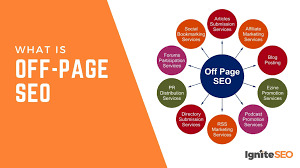Text
0 notes
Text
0 notes
Text
5 on-pages SEO tips that you may not know
An important part (even if it's not all) of the SEO activity takes place on the pages of your site, this activity is of the on-page SEO. The actions that are carried out instead of your pages, such as the management of links to your site, are called off-page SEO.
On-page optimization should be the starting point of any quality SEO strategy, and the first thing to focus on to get high rankings on search engines.
Here are 5 on-page SEO tips that you may not know about.
Enter the keywords at the beginning of your title tag
Not only are search engines taking the title tag into consideration as one of the most important places to identify keywords, research has also shown that putting target keywords at the top of the page's title tag can help you position yourself more high in search results.
Use the "nofollow" for unimportant links
Whenever you put a link to another page, both on your site and on another site, you're passing it the "PageRank". Consider the PageRank as "SEO points" .

When you link to a Wikipedia article, for example, unless you add the "rel = nofollow" attribute to that link, you're giving that page some of your PageRank for free.
Make it a habit to pass the PageRank only to the pages of your site that you want to place in the search results. Also use text links that contain the keyword for which you want to place that page.
Avoid too many links on a given page
The page rank that a particular page passes through its link is divided by the total number of links on that page.
If you have a footer on your blog with links to 50 other pages on your website, you are diluting the pagerank almost completely. Stay away from those "mega" footers that contain links to the entire site.
The same applies to the side bars of the blog. If you really need to have all those links, put them in an iframe, so the search engines won't take them into consideration, even if they look exactly the same to your visitors.
Use the <strong> tag for keywords instead of the <b> tag.
Most people think it's the same thing, but it's not. Bold tags (<b> </b>) are simply an aesthetic fact.
They are intended to highlight the text for the user. While the <strong> </strong> tags , which also appear in bold, also tell search engines that those words or phrases are more important than others.
Make good use of the keywords within the first 200 words of your page Search engines are getting smarter. One of the things they have been starting to do for some time is to put more emphasis on the content at the top of the page.
If you think about it, it makes perfect sense. The content above the page scroll is generally more important, so you should evaluate it carefully.
This does not mean that you fill the first 200 words with keywords (which could penalize you instead), just make sure that the keywords you've targeted are present in your text, but in a natural way, towards the top of the page.
Credit - https://seotorontoguy.ca
0 notes
Text
1 note
·
View note